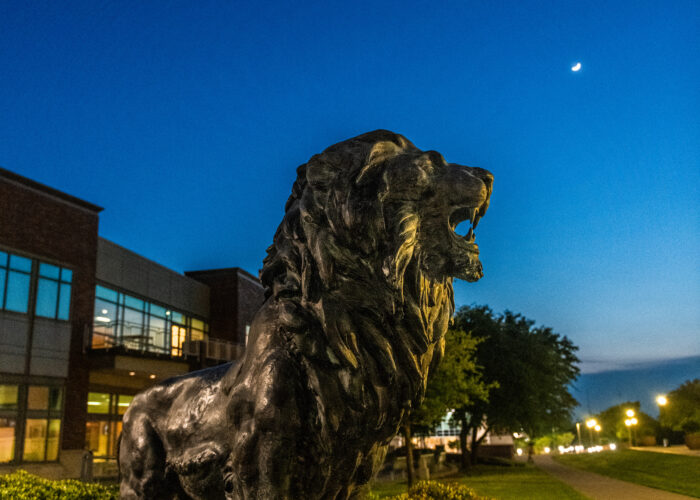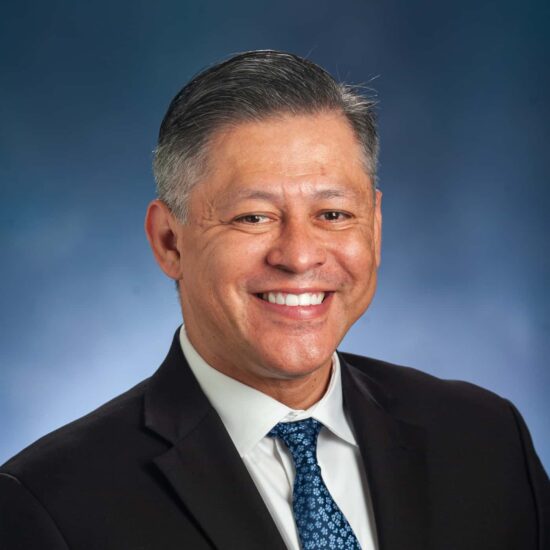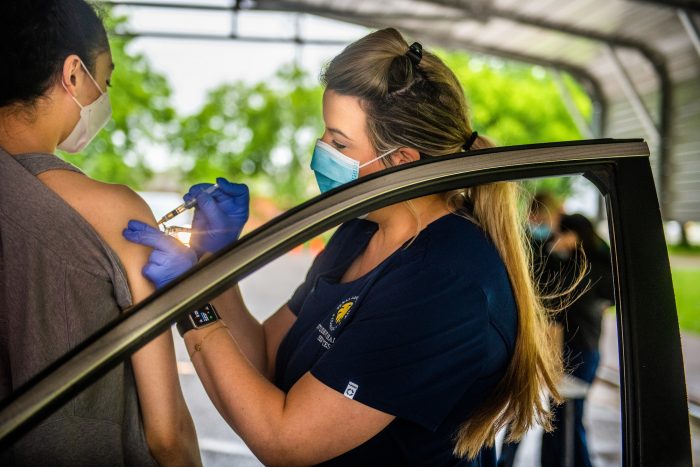Letter from Dr. Rudin regarding the Fall 2020 semester

Dear Lion Family,
Since we first announced our intent to bring students back to campus for the Fall 2020 semester, our faculty and staff have been very busy, as we must plan with the continued presence of COVID-19 in mind. Please know that we are continually monitoring the spread of COVID-19 and will evolve and enhance our plans as health evidence, A&M System recommendations, and State mandates dictate.
We are excited to welcome students back to campus and/or studying with us remotely. We are moving forward with two thoughts driving our planning: 1) to take appropriate steps toward maintaining the health and well-being of our students, faculty, and staff and 2) to meet the needs of our students by providing the best educational experience possible. To accomplish these goals, Fall 2020 will not look like Fall 2019 in many ways. For one, we recognize that face coverings, physical distancing, and heightened hand hygiene will be necessary, as these are the tools we currently have to interrupt the spread of the virus.
To ensure social distancing and safety of our Lion Family in the classroom, we conducted a thorough review of our room capacities. We carefully considered everything from seat and desk type, to classroom layout, to the number of entry and exit points for our rooms. We then layered over that CDC guidelines regarding six feet of distance between individuals in all directions. Outside of each classroom space, we have listed the maximum occupancy (i.e., COVID capacity). Social distancing has reduced our classroom capacity by roughly 75%. As a result, classroom space availability will impact teaching. For example, a MWF 9:00 AM course with 30 students may be organized around a session on each of those days for only ten students at a time, with other instructional components happening online.
Because of room capacities, our schedule for fall will offer a mix of face-to-face, hybrid forms, and online instructional options. We will serve our students wherever they are. Our faculty will design educational experiences that make the most of all modes of teaching. To do so, we are investing in technology upgrades (i.e., cameras, microphones) in several of our classrooms to create greater flexibility. We are prioritizing face-to-face for those courses that most depend upon “doing” what they study (e.g., lab sciences, fine arts). We are also prioritizing face-to-face for those courses that have historically been most challenging in-person, such as entry-level mathematics. Since most living in residence halls are freshmen and sophomores, face-to-face instruction will be available for lower-level courses in higher proportion than upper-level undergraduate and graduate courses.
Faculty who are at risk or feel the need to exercise special caution against infection will be teaching remotely. Students who are concerned about health risks for themselves or their families will have online options in all courses so that they can learn from the safety of their homes or on-campus housing. Most students who need in-person instruction or hands-on experiences for their specific degree programs will have them. Thus, many of our faculty who thrive teaching in-person will have that opportunity. Of course, we will nonetheless be prepared to move all coursework online if the health evidence and/or governmental authorities deem it necessary to maintain health and safety.
Allowing for everyone's needs to be met has resulted in a number of changes to the Fall 2020 schedule, specifically related to course modality. This process is on-going. Changes can be monitored on your class schedule by looking at the section numbers of each of your courses:
“W” course sections are fully online. Two factors drove the movement of certain courses to online: the safety of faculty and students and the need to open up room capacity for those courses for which in-person instruction is most essential to the educational experience.
All in-person courses will have online elements, as 1) our classroom capacities may not allow for everyone to be in class at once and 2) students will have the option to take in-person courses remotely if needed:
“E” sections will meet every scheduled day in-person during the semester. If the number of students in the course is greater than the listed room capacity, students will alternate days of attendance.
“B” sections will meet in-person periodically on a schedule that will be set by the instructor but other elements of instruction will occur online. However, not all students will attend every face-to-face meeting due to the limited room capacity.
A student in a “B” or an “E” section can fully participate in class online if they need to do so.
In the coming weeks, you will receive more information – first from your respective college deans, and then from individual faculty members – about the specific instructional plan for each of your courses. Please be watching your LeoMail to keep track of these important details.
The coming academic year will likely test us all. We are relying on all members of the campus community – students, faculty, and staff – to accept and consistently comply with public health guidance and university procedures and protocols developed to help fight the spread of COVID-19 and keep our community as safe as possible. This is a responsibility that we each assume as we accept membership in the Lion Family. We are steadfast in our belief that our Pride will come together to protect themselves and others through good judgment and a sense of personal responsibility. We are all in this together and we are confident that we can rise to this challenge.
You, our students, are our inspiration and your academic progress and growth is our aspiration. And we are excited about welcoming you back for the Fall 2020 semester.
Stay safe and stay well.

More COVID-19
View All COVID-19
TAMUC Education Faculty Member Releases Handbook of Research on Teacher Preparation
Juan Araujo, Ph.D., faculty member and assistant dean in the College of Education and Human Services at Texas A&M University-Commerce, has released a new book titled “Handb...

TAMUC Recognized by Texas Higher Education Coordinating Board for Exemplary COVID-19 Response
Texas A&M University-Commerce was honored this week as a 2021 Star Awards recipient by the Texas Higher Education Coordinating Board (THECB). A&M-Commerce was one of o...

TAMUC Robot Living Lab to Partner with Invento Research
The School of Social Work at Texas A&M University-Commerce is excited to announce a new, collaborative partnership between its Robot Liv...

